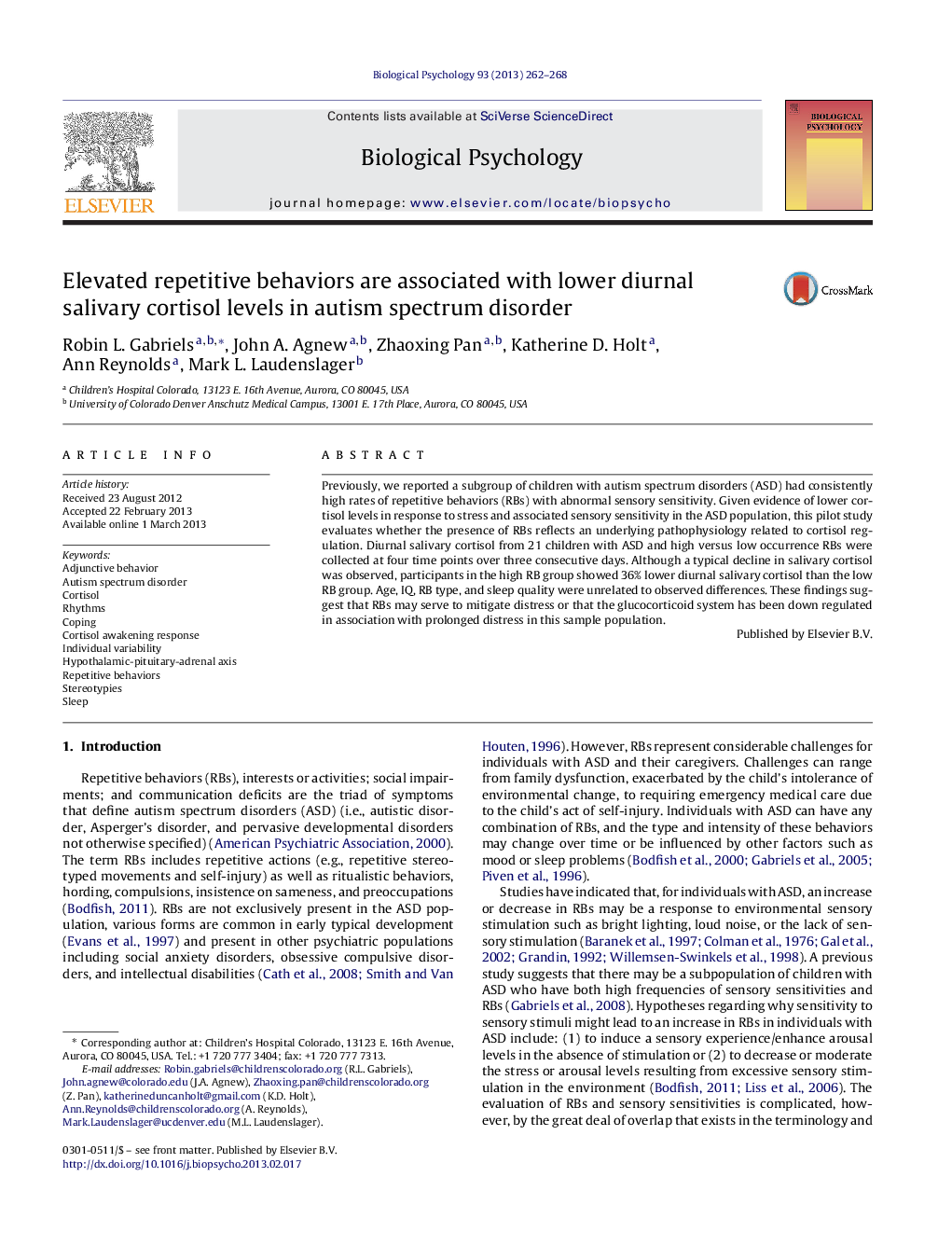| کد مقاله | کد نشریه | سال انتشار | مقاله انگلیسی | نسخه تمام متن |
|---|---|---|---|---|
| 920963 | 920741 | 2013 | 7 صفحه PDF | دانلود رایگان |

Previously, we reported a subgroup of children with autism spectrum disorders (ASD) had consistently high rates of repetitive behaviors (RBs) with abnormal sensory sensitivity. Given evidence of lower cortisol levels in response to stress and associated sensory sensitivity in the ASD population, this pilot study evaluates whether the presence of RBs reflects an underlying pathophysiology related to cortisol regulation. Diurnal salivary cortisol from 21 children with ASD and high versus low occurrence RBs were collected at four time points over three consecutive days. Although a typical decline in salivary cortisol was observed, participants in the high RB group showed 36% lower diurnal salivary cortisol than the low RB group. Age, IQ, RB type, and sleep quality were unrelated to observed differences. These findings suggest that RBs may serve to mitigate distress or that the glucocorticoid system has been down regulated in association with prolonged distress in this sample population.
► Repetitive behaviors modulate stress responses in many animals.
► Repetitive behaviors are a core feature of the autism diagnosis.
► Autistic participants grouped based on high or low levels of repetitive behaviors.
► Individuals with high repetitive behaviors had significantly lower cortisol levels.
► Repetitive behaviors may represent a coping strategy for individuals with autism.
Journal: Biological Psychology - Volume 93, Issue 2, May 2013, Pages 262–268